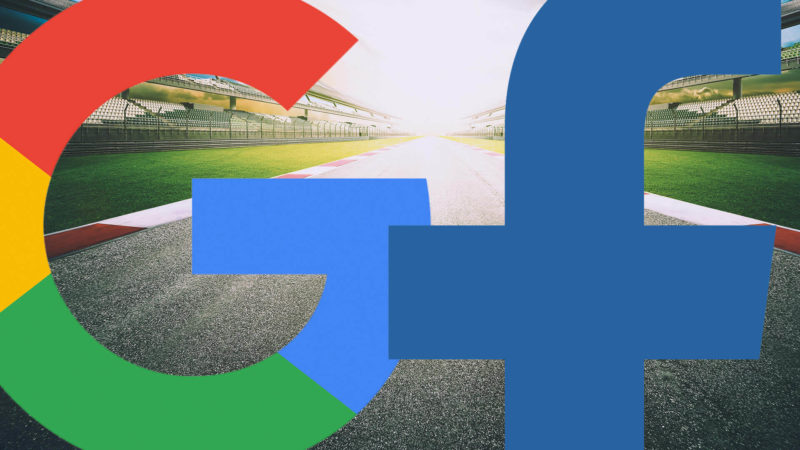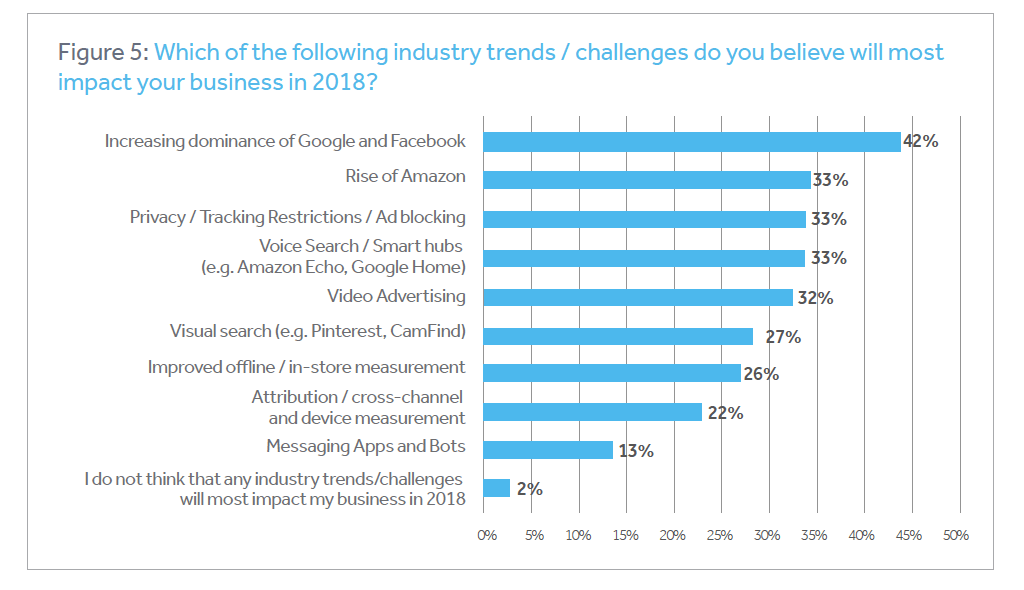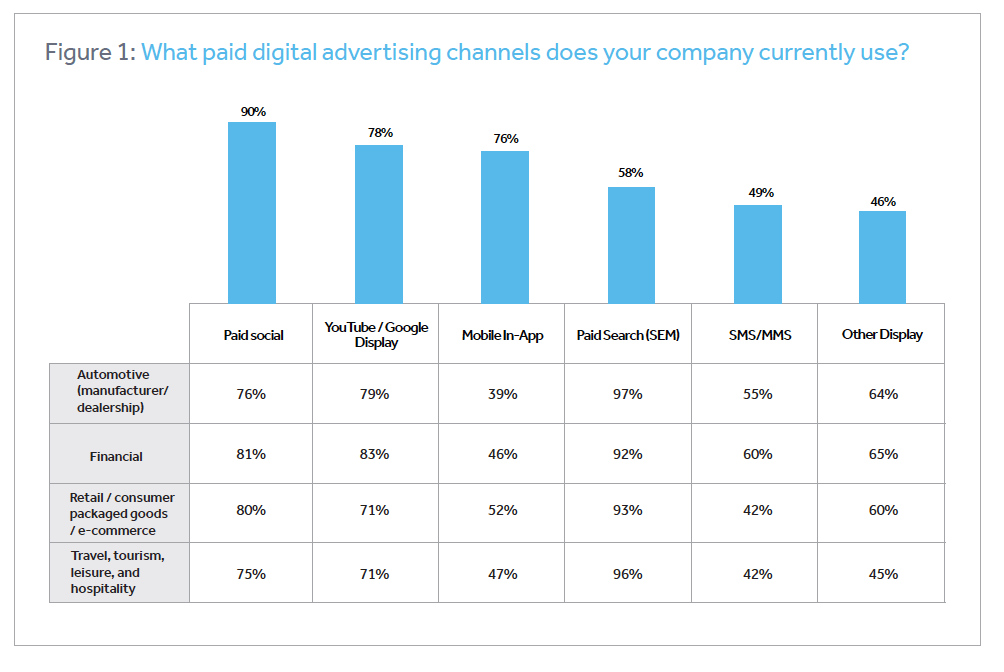Report: Google and Facebook top advertisers’ list of fears that could impact their businesses in 2018
Regardless, advertisers will give a larger portion of their budgets to Google properties than to any other entity.

Advertisers fear the impact of Google and Facebook on their businesses more than any other industry trends in 2018, according to a Marin Software report on digital advertising released Tuesday.
The State of Digital Advertising 2018 notes that the so-called duopoly prevents advertisers from optimizing their customers’ experience by keeping measurements and performance within its “walled gardens.”

The report is based on a global survey of more than 500 B2B and B2C advertising professionals across the retail, automotive, travel and finance sectors.
Paid social is becoming more important to marketers
Also notable from the report is that paid social has muscled past other channels, including search. Nearly all respondents (90 percent) will invest in paid social media in 2018. Seventy percent say they will invest more heavily than last year in paid social.

From the report:
Paid social media is popular with advertisers for two main reasons: reach and flexibility. In 2017, around a third of the 7.5 billion global population used social media, and about a quarter had Facebook accounts. For advertisers this makes social somewhat of a one-stop shop to reach a large number of new consumers within their target audience. Social media platforms are inherently visual, so they provide brands with a variety of formats from basic image-based ad units to immersive stories on Instagram.
Advertisers unsurprisingly will invest more digital marketing budget in paid social (30 percent) than any other paid media channel, with search at 26 percent. The report notes that “when you add search to YouTube and Google Display, Google remains in control of the largest part of the digital marketing budgets.”
Advertisers said that integrating search with social is their biggest challenge, citing Facebook’s restrictions on third-party pixels.
From the report:
The inability to integrate search and social stems from the fact that Facebook doesn’t allow advertisers to use their own pixel within ads, instead requiring them to use Facebook’s pixel and therefore reporting. The result is that two different sets of performance data are produced with no way to understand cross-channel interactions. Despite this significant downside, Facebook’s scale means that advertisers cannot ignore the channel and must make a significant investment in it.
Contributing authors are invited to create content for MarTech and are chosen for their expertise and contribution to the martech community. Our contributors work under the oversight of the editorial staff and contributions are checked for quality and relevance to our readers. MarTech is owned by Semrush. Contributor was not asked to make any direct or indirect mentions of Semrush. The opinions they express are their own.
Related stories
New on MarTech